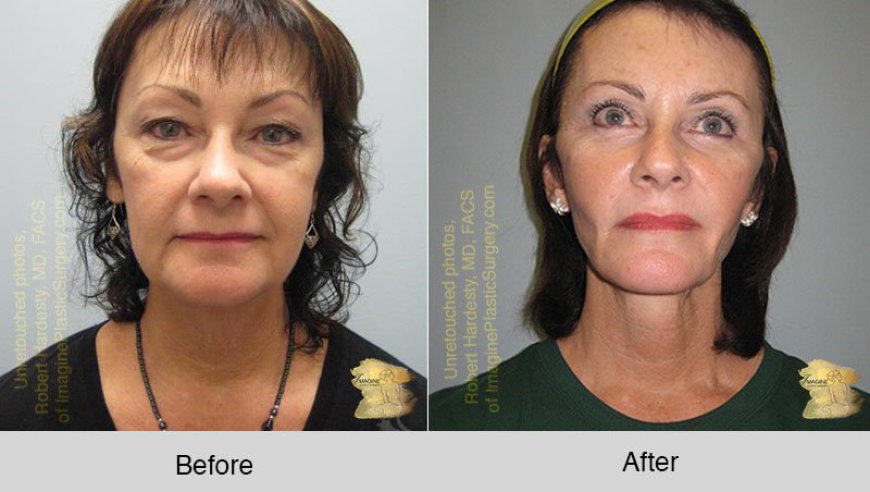A Comprehensive Guide To Pre and Post Reconstruction Surgery Care!

Facial reconstruction surgery is a significant step for many individuals, whether it's due to injury, congenital conditions, or other factors. Understanding facial reconstruction surgery before and after can make a world of difference in recovery and overall outcomes. This guide will walk you through essential pre- and post-operative care, ensuring you feel well-prepared and supported throughout the process.
Note: Make sure you always consult a medical professional before getting any of these procedures done.
Getting Ready for the Big Day
● Do Your Homework
Before diving into surgery, it’s crucial to do your research. Familiarize yourself with the procedures involved, recovery times, and what to expect. Knowing the ins and outs can ease anxiety and help set realistic expectations. Talk to your doctor about the surgery details and ask any burning questions.
● Assemble Your Support Team
Surround yourself with a reliable support system. Whether it’s family or friends, having someone by your side during recovery can provide emotional and practical assistance. Don’t hesitate to lean on them for help with daily tasks or just to chat and keep spirits high.
● Follow Pre-Op Instructions
Your surgeon will provide specific pre-operative instructions. Stick to them like glue! These guidelines may include dietary restrictions, medication adjustments, and activity limitations. Following these steps can significantly affect your surgical outcome.
● Prepare Your Space
Create a comfortable recovery space at home. Stock up on essentials like pillows, blankets, and anything else that makes you feel cozy. Consider having some light entertainment ready, like books or movies, to help pass the time during recovery. The more at ease you feel, the smoother the healing process will be.
Understanding the Surgical Process
What Happens During Surgery?
Facial reconstruction surgery involves repairing or reshaping facial features. The specifics can vary greatly depending on the individual’s needs. Surgeons might use various techniques and materials, so it’s essential to understand what applies to your case.
Choosing the right surgeon is critical. Research the best facial reconstructive surgeons in your area. Look for reviews, credentials, and before-and-after photos of past patients. A skilled surgeon will not only enhance your results but also make you feel at ease throughout the process.
Post-Surgery: The Road to Recovery
● Embrace the Healing Process
After the surgery, your body needs time to heal. You may experience swelling, bruising, or discomfort—these are all normal reactions. Patience is key. Follow your surgeon’s post-operative care instructions closely, including how to manage pain and when to return for follow-up visits.
● Stay on Top of Medications
Your doctor may prescribe pain medications or antibiotics. Be diligent about taking them as directed. This will help manage any discomfort and prevent complications. Set reminders if necessary, so you don’t miss a dose.
● Hydration and Nutrition Matter
Keep yourself hydrated. Water plays a crucial role in recovery. Pair that with nutritious meals. Foods rich in protein, vitamins, and minerals can boost your healing process. Don’t shy away from asking friends or family to help prepare meals in those early days post-surgery.
Keeping Up with Appointments
● Follow-Up Visits are a Must
Regular follow-up visits with your surgeon are essential. These appointments allow your doctor to monitor your recovery progress. They can address any concerns or questions you might have. Never hesitate to voice your worries during these visits.
● Understanding Healing Times
Every individual heals differently. Factors such as age, overall health, and the complexity of the surgery can influence recovery times. Be gentle with yourself and give your body the time it needs.
Tips for a Smoother Recovery
● Manage Expectations
Keep in mind that results won’t be immediate. Initial swelling and bruising can mask the final outcome of your surgery. It can take weeks, if not months, for the final results to fully materialize. Maintain a positive mindset; good things take time!
● Practice Good Self-Care
Self-care is vital during recovery. Engage in light activities that you enjoy, such as reading or gentle walking. However, avoid any strenuous activities until your doctor gives the green light. Listen to your body—it knows best!
● Stay Connected
Don’t isolate yourself. Keep in touch with friends and family during your recovery. Share your experiences, thoughts, and feelings. This social connection can be incredibly uplifting, making the healing process less lonely.
● Keep Your Mind Occupied
Recovery can sometimes lead to boredom, especially if you’re not allowed to be active. Keep your mind engaged with hobbies like puzzles, drawing, or even learning a new skill online. Staying busy can make time fly and help maintain a positive outlook.
Knowing When to Seek Help
Don’t hesitate to ask your support team for help. Whether it’s running errands or just providing company, they’re there for a reason. Lean on them whenever needed. It’s okay to admit when you need assistance.
The journey through facial reconstruction surgery can feel overwhelming, but being well-prepared and informed can ease the process. Remember, understanding facial reconstruction surgery before and after is crucial for a successful outcome. Good luck on your journey to recovery!
Note: Always consult a medical professional before you get started with any such procedures.
Check out Imagine Plastic Surgery - call (951) 686-7600 or visit 4646 Brockton Ave #302, Riverside, CA 92506 to learn more about their services.
